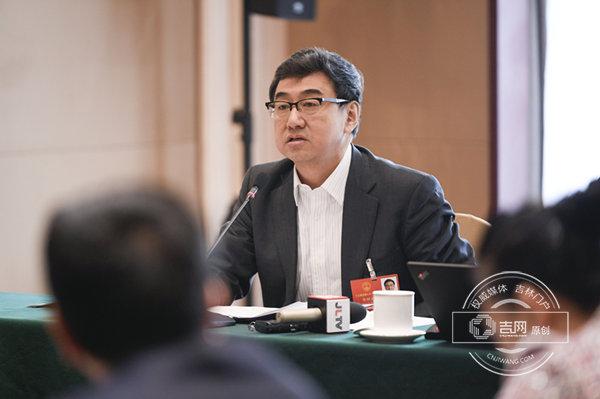Hierarchical diagnosis is irreplaceable to 'Healthy China' strategy
Hierarchical diagnosis can improve the efficiency of diagnosis, and could play an important role in the implementation of China's national health strategy, deputy Hua Shucheng said during the two sessions.
Hierarchical diagnosis means different hospitals are responsible for specific disease treatments and patients go to see doctors in different clinics according to their disease.
Hua is the dean of the First Bethune Hospital of Jilin University and has his own views on the role hierarchical diagnosis and general practitioners' cultivation play in the health strategy.
He said improving Chinese people's health condition by adopting the hierarchical diagnosis system cannot count on only one or two hospitals; all the medical institutes all over the country should be involved in this campaign.
 |
|
The Healthy China strategy was proposed by Chinese government in 2015. Deputy Hua Shucheng, dean of the First Bethune Hospital of Jilin University, says at the two sessions that hierarchical diagnosis and general practitioner cultivation play important roles in China's health strategy. [Photo/cnjiwang.com] |
"The largest medical institutes in a province or city like the First Bethune Hospital of Jilin University should be models for other hospitals," he added.
To date, the hospital Hua works for has made some attempts to promote hierarchical diagnosis to hospitals in other cities in the province. A joint system was built among about 100 hospitals and clinics and professional medical teams were sent to help improve treatment skills in local clinics.
"We also have a group of doctors who are in charge of training general practitioners. They visit other hospitals and offer management and professional knowledge and skills relate to medical care," Hua explained.
As more and more general practitioners acquire better skills, many medical institutes' treatment levels are improved. "This largely relieves the pressure of the main hospitals' being overloaded with patients."
Hua suggested larger medical institutes should help improve treatment levels in clinics and hospitals in towns and villages and share their talents and medical resources.
Meanwhile, cultivating general practitioners is irreplaceable to China's national health strategy and an online and remote diagnosis system should be constructed to efficiently meet patients' medical demands.




 Mail
Mail Print
Print Larger
Larger
